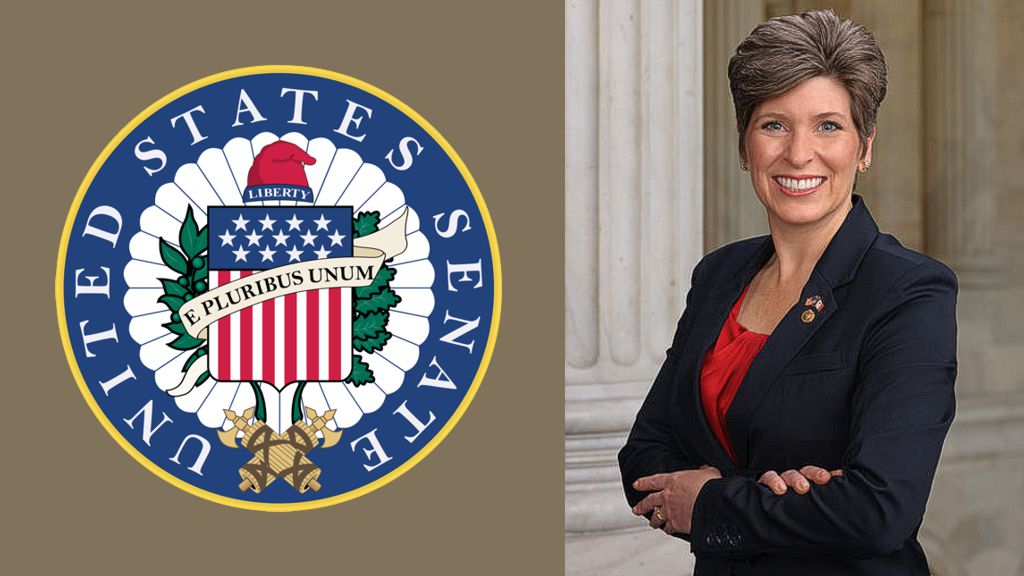Washington, D.C. — House Judiciary Committee Chairman Jerrold Nadler (D-NY), Senator Edward J. Markey (D-MA), Chairman of the Judiciary Subcommittee on Courts, Intellectual Property, and the Internet Hank Johnson (D-GA), and Representative Mondaire Jones (D-NY) today introduced the Judiciary Act of 2021 to expand the United States Supreme Court by adding four seats, creating a 13-justice Supreme Court. This bill would restore balance to the nation’s highest court after four years of norm-breaking actions by Republicans led to its current composition and greatly damaged the Court’s standing in the eyes of the American people. In order for the Court to fulfill its duty to deliver equal justice under the law, and protect the rights and well-being of millions of Americans, the legislation expands the Court to restore balance, integrity and independence to it.
“Nine justices may have made sense in the nineteenth century when there were only nine circuits, and many of our most important federal laws—covering everything from civil rights, to antitrust, the internet, financial regulation, health care, immigration, and white collar crime—simply did not exist, and did not require adjudication by the Supreme Court,” said Chairman Nadler. “But the logic behind having only nine justices is much weaker today, when there are 13 circuits. Thirteen justices for thirteen circuits is a sensible progression, and I am pleased to join my colleagues in introducing the Judiciary Act of 2021.”
“Republicans stole the Court’s majority, with Justice Amy Coney Barrett’s confirmation completing their crime spree,” said Senator Markey. “Of all the damage Donald Trump did to our Constitution, this stands as one of his greatest travesties. Senate Republicans have politicized the Supreme Court, undermined its legitimacy, and threatened the rights of millions of Americans, especially people of color, women, and our immigrant communities. This legislation will restore the Court’s balance and public standing and begin to repair the damage done to our judiciary and democracy, and we should abolish the filibuster to ensure we can pass it. I thank Chairman Nadler, and Reps. Johnson and Jones for their partnership on this legislation that will ensure the Supreme Court reflects the value of equal justice under law, not politics.”
“It’s easy to take for granted that the number of justices on the Supreme Court must be nine,” said Representative Johnson. “But it is not written in the Constitution and has changed seven times over the course of this country’s history. Thirteen justices would mean one justice per circuit court of appeals, consistent with how the number of justices was originally determined, so each justice can oversee one circuit. It’s time that we start thinking about the Supreme Court like we think about the rest of the federal government and consider whether and how its current composition allows it to effectively do what we need it to do — efficiently and effectively administer justice and uphold the rule of law. I am pleased to join my colleagues, Senator Markey, Chairman Nadler, and Representative Jones in taking an important step in that direction today with the introduction of the Judiciary Act of 2021.”
“Our democracy is hanging by a thread. And the far-right majority on the U.S. Supreme Court is cutting it,” said Representative Jones. “From Citizens United to Shelby County to Rucho, the Court has been hostile to democracy itself. If a law suppresses the right to vote, it is constitutional; if a law protects the right to vote, especially for Black and brown voters, it is unconstitutional. The American people have had enough. To restore power to the people, we must expand the Supreme Court. Today, I am proud to introduce the Judiciary Act of 2021 to do just that.”
A copy of the legislation can be found below and HERE.
The number of justices that sit on the Supreme Court is set by a simple act of Congress, and it can be changed the same way, without requiring a constitutional amendment. Congress has adjusted the size of the court seven times throughout its history, ranging from six to ten justices and establishing a substantial historical precedent for the legislation.
In 2016, then-Majority Leader Mitch McConnell and the Republican Senate refused to consider the nomination of Judge Merrick Garland to the high court, citing their opposition to consideration of Supreme Court nominations in an election year. Yet, a few years later in 2020, Senate Republicans broke their own rule in order to confirm Justice Amy Coney Barrett while Americans had already begun casting their votes in the presidential election. Republican appointees represent a 6-3 supermajority, and Republicans have appointed 15 of the last 19 justices to the bench.
Support for the Judiciary Act of 2021:
“A majority of the justices on the Supreme Court were nominated by presidents who lost the popular vote,” said Nan Aron, President of Alliance for Justice. “Over the past four years, we saw two of those seats stolen to stack the Court with ultraconservative justices with a partisan agenda. We can’t simply sit by and allow them to turn back the clock on equal justice and the rule of law for decades to come. Too often our courts have been rigged to serve the wealthy and powerful at the expense of all others seeking justice. Expanding the number of justices and seizing the opportunity to nominate diverse, forward-thinking jurists will democratize the highest court in the land so that it can properly uphold the rights of all Americans. It’s time to put the justice back in Supreme Court ‘justice.’”
“In the past several years, we have witnessed a destruction of historical norms for the sole purpose of preventing a fair and representative Supreme Court,” said Ron Fein, Legal Director of Free Speech For People. “In order to reflect the needs of America in the 21st century, protect our democracy, and secure the rights of the American people, Congress must increase the number of justices on the Supreme Court from nine to thirteen.”
“Republicans have weaponized the Supreme Court for decades, simultaneously blocking legislation that would create a fairer, stronger country and trampling on our existing rights,” said Ana Maria Archila, Co-Executive Director of Center for Popular Democracy Action. “This has led to a dangerous erosion of faith in one of our most important institutions. In order to restore the integrity of the court and safeguard our democracy, we must seize this opportunity to increase its size by four seats and appoint honorable justices committed to serving the people. We cannot let this moment pass without taking action — this is our chance to reverse the harms caused by Republicans’ dereliction of duty and protect our increasingly fragile rights and freedoms.”
“The Court has effectively nudged out Congress and the President in determining constitutional rights and obligations, which has become increasingly troublesome given the recent politicization of the judiciary,” said Craig Holman, Ph.D., Public Citizen. “This trend is at odds with the constitutional framework of separation of powers and checks and balances. The danger to constitutional governance is not that the elective branches will impose their will on the judiciary through frequent court expansion plans. In today’s era, the danger is a court that no longer sees much need to reflect on the efficacy of the elective branches of government or on the values of the American public. The Judiciary Act will help the elective branches restore constitutional checks and balances.”
“We applaud Rep. Jones for his vision and initiative in introducing a proposal to rebalance and expand a court that has been politicized, homogenized and captured by special interests,” says Annie Laurie Gaylor, co-president of the Freedom From Religion Foundation.
“Today’s introduction of the Judiciary Act, under the leadership of Senator Markey, Congressman Johnson, Chairman Nadler, and Congressman Jones, is a critical step toward saving American democracy,” said Aaron Belkin, director, Take Back the Court. “The Court’s conservative supermajority has led the charge in Republicans’ assault on voting. Unless we add seats, they will continue to green light voter suppression and dismantle efforts to protect Americans’ most fundamental rights. Everything we care about is at risk if we don’t get this bill passed to expand the Court — from the vital democracy protections in HR1 to progress on climate change, racial justice, reproductive freedom, and more. Democracies simply cannot function when only one side follows the rules. That’s why Take Back the Court is so proud to endorse this legislation that will rebalance the Court and restore faith in a broken judicial system.”
“Indivisible applauds Representative Jones for introducing this crucial piece of legislation that would rebalance our Supreme Court,” said Meagan Hatcher-Mays, Director of Democracy Policy at Indivisible. “This is not simply a matter of idle disagreements with the conservative majority currently in control of the Court — this is about preserving our democracy and our right to have a say in how we are governed and who governs us. Americans have made it clear: we want a government that works by, of, and for the people. But the Supreme Court has repeatedly denied us that opportunity. Chief Justice John Roberts, and his merry band of unelected, conservative ideologues who sit with him on the bench, have yet to find a racist voter suppression bill or policy that they didn’t like. From gutting the Voting Rights Act in 2013 to forcing Wisconsin voters to go out and vote in person in the middle of a pandemic, this Court cannot be trusted to protect our sacred right to vote. And with over 250 bills pending in state legislatures all across the country to restrict the right to vote, we cannot leave our democracy’s fate in their hands. Congress must move quickly to pass Representative Jones’s landmark court expansion legislation.”
“Democrats are officially done being complacent about the courts,” said Brian Fallon, Executive Director, Demand Justice. “Our goal is to build consensus for this plan as quickly as we have seen Democrats align around the need to abolish the Senate filibuster. Expanding the Court is every bit as necessary for restoring our democracy.”
“The Supreme Court’s current makeup is arbitrary and antiquated. And in the last five years, partisan manipulation of vacancies has only intensified the need for new thinking about the composition of the nation’s highest court,” said Brenda Wright, Demos Interim Director of Legal Strategies. “The structure of the Supreme Court has failed to keep pace with developments in the last 150 years. While having a court with nine judges originally was tied to the number of Circuit Courts that existed in 1869, that arrangement is outdated in this modern era of 13 Circuit Courts. Time and time again, the current majority has been openly hostile to Black and brown Americans, and consequently, to the wellbeing of this country. Expanding the Supreme Court to restore its balance and legitimacy is a critical and urgent step toward unrigging the rules and building a more inclusive democracy.”
“Expanding the Supreme Court is a critical step in the fight to save our democracy from minority rule,” said People’s Parity Project Executive Director Molly Coleman. “By allowing us to build a Court that better reflects our country and the interests of people, rather than corporations, the Judiciary Act will ensure that workers, consumers, and marginalized people have a fighting chance to build a better country for us all.”





